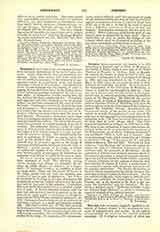

Contzen, ADAM, economist and exegete, b. in 1573 (according to Sommervogel in 1575), at Montjoie in the Duchy of Julich, which is now part of the Rhine Province of Prussia; d. June 19, 1635, at Munich. He entered the Society of Jesus at Trier in 1595, was professor of philosophy in the University of Wurzburg in 1606, and was transferred to the University of Mainz in 1610, where he occupied the chair of Holy Scripture for more than ten years. He had a share in the organization of the University of Molsheim, in Alsace, of which he was chancellor in 1622-23. Contzen was a learned and versatile writer in theological controversy, in political economy, and in the interpretation of the Scriptures. He defended the controversial works of Cardinal Bellarmine against the attacks of Professor Pareus of Heidelberg, and when the latter sought to unite the Calvinists and the Lutherans against the Catholics, Contzen demonstrated the impractical nature of the project in his work, “De unione et synodo Evangelicorum”, and showed the only way of restoring peace to the German nation in his important work, “De Pace Germanise libri duo, prior de falsa, alter de vera” (Mainz, 1616). This work was twice reprinted at Cologne, in 1642 and in 1685. His ideas on the restoration of peace were further developed in the works occasioned by the centenary of the Reformation, one of which, “Jubilum Jubilorum”, was published (1618) in Latin and in German. His most interesting work, which marks him as a thinker in advance of his age, “Politicorum lib. X”, was published at Mainz in 1621 and 1629. The book has been called an “Anti-Macchiavelli” because the author describes the ruler of a Christian commonwealth in accordance with the principles of Revelation. In the questions of political and national economy which he discusses he advocates a reform of taxation, the freeing of the soil from excessive burdens, state ownership of certain industries for the purpose of revenue, indirect taxation of objects of luxury, a combination of the protective system with free-trade, and state aid for popular associations. The Elector Maximilian of Bavaria was so impressed by the ability shown in this work that he chose Contzen for his confessor. During his residence in Munich, which began in 1623, he completed and published his commentaries on the Four Gospels, and on the Epistles of St. Paul to the Romans, the Corinthians, and the Galatians. He also wrote a political novel, “Methodus doctrinse civilis, seu Abissini Regis Historia”, in which he showed the practical working of his political theories.
B. GULDNER

